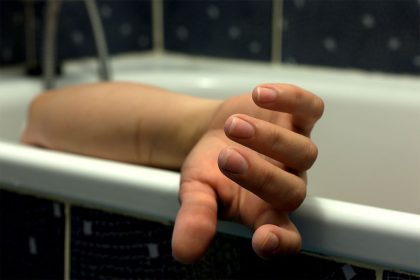What to do when you find a dead body
It was a warm summer day when I went for a walk in the park. As I strolled along, I noticed something strange lying on the ground. It looked like a person. I approached cautiously, and sure enough, it was a dead body.I couldn’t believe my eyes. I didn’t know what to do. Should I call the police? Or should I just leave the body there and pretend like I never saw anything?
I decided to call the police. After all, someone’s life had ended, and it wasn’t right for them to just be left there alone. The police arrived soon after and took care of everything.This was a very surreal experience and one that I will never forget.What would you do if you discovered a dead body? Would you call the police or would you just leave it there? Let us know in the comments below!
Call the police right away!
If you discover a deceased person, it is important to remain calm and call 911 immediately. Once emergency services arrive, they will take over the situation and investigate the cause of death. If you knew the deceased person, you may be asked to provide information to help with the investigation. It is also important to remember that seeing a dead body can be traumatic, so it is okay to seek counseling or support from friends and family members if needed.
What does a dead body smell like?
A dead body smells like rotting flesh. The odor is often described as being similar to that of a decomposing animal or a foul-smelling diaper. The smell of death can be overwhelming and may cause nausea or vomiting. It is important to remember that the smell of a dead body is not always indicative of foul play and should not be used as the sole basis for suspicion. If you come across a situation where there is an unexplained smell of death, it is best to contact authorities immediately.
Do animals eat dead human bodies?

There is no definitive answer to this question, as it largely depends on the circumstances surrounding the death of the human and the animal in question. If an animal happens upon a human body that has recently died (and assuming that the animal is not itself sick or injured), it is unlikely that the animal would eat the body. However, if an animal comes across a human corpse that has been dead for some time, the animal may try to scavenge the body for food. In general, though, animals are more likely to avoid eating corpses, both human and otherwise.
How long does it take for a dead body to decompose?
The answer to this question depends on a number of factors, including the temperature, humidity, and presence of insects or other animals. Generally speaking, decomposition is fastest in warm, moist conditions with plenty of oxygen (such as those found in tropical environments). Bodies in cooler, drier conditions take longer to decompose.
There are four main stages of human decomposition: autolysis, putrefaction, black putrefaction, and skeletonization.
Autolysis is the self-digestion of tissues that begins immediately after death. Within minutes to hours after death, cells begin to break down and release their contents into the surrounding environment.
Putrefaction is the second stage of decomposition and is caused by the action of bacteria on the body. Bacteria break down proteins in the tissues, releasing foul-smelling gases in the process.
Black putrefaction is the third stage of decomposition and is characterized by the blackening of tissues. This is caused by the action of anaerobic bacteria, which do not require oxygen to live.
Skeletonization is the final stage of decomposition, during which the soft tissues of the body have been completely broken down and only the bones remain.
The rate at which a dead body decomposes depends on a number of factors, including:
Temperature: warmer temperatures accelerate decomposition while cooler temperatures slow it down.
Humidity: high humidity speeds up decomposition while low humidity slows it down.
Oxygen: decomposition is faster in environments with plenty of oxygen (such as outdoors) while it is slower in environments with little oxygen (such as underwater).
Insects and other animals: the presence of insects or other animals can speed up decomposition by introducing bacteria or breaking down tissues.
There is no one answer to the question of how long it takes for a dead body to decompose because the rate of decomposition depends on a number of factors. However, in general, decomposition is fastest in warm, moist conditions with plenty of oxygen and slows down in cooler, drier conditions. Bodies in tropical environments tend to decompose the fastest, while bodies in cold environments can take months or even years to decompose.
If you need unattended death cleanup services, please click the link Here
